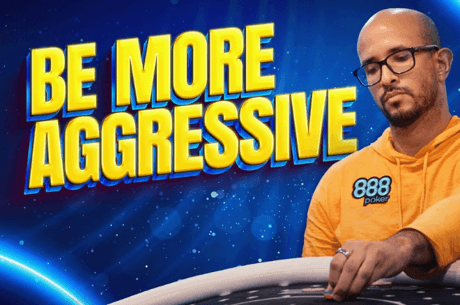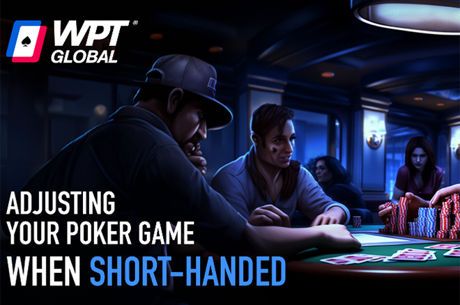The Power of Position: Getting a Free Card


Earlier this week in an article titled “When Strong Means Weak: The Chip-Grabbing Tell,” Robert Woolley wrote about a player in late position grabbing for chips so as to dissuade an opponent from leading out with a bet. As he explained, one motive for such an action might be to try to get a “free card” — that is, to see an extra community card without having to invest more money in the pot.
There are many advantages to playing hands with position on an opponent. Being able to have an opponent who is acting before you check and then give you a “free” chance to improve your hand ranks high on the list. Let’s take a deeper look at the idea of getting a free card with an example to illustrate its significance.
The Power of Position
Say you are on the button and action folds to you. You look down at 9♣8♦ and decide to raise. The small blind throws his hand away and the big blind calls you. The flop comes down A♠7♥6♣ and your opponent checks over to you. You’ve flopped an open-ended straight draw and fire out a continuation bet. Your opponent calls.
The turn then brings the 2♠ and your opponent checks for a second time. By checking the turn as well, you give yourself a free look at the river and a chance to improve your hand without investing any more money into the pot. This is an example of receiving a free card.
This principle works when you are in position against your opponent and last to act in the hand. By showing aggression both before the flop and on the flop with a raise and then a continuation bet, your actions have dictated the way the hand has played out thus far. Often, players will tend to employ a “check to the raiser” mentality where they essentially allow the last player to lead into the pot to fire again. By being the last player to act, you already know what your opponent has chosen to do on that street and can then use that information to your advantage.
While the above example illustrates getting to see the river for free, this principle can be applied on the flop as well. If a player checks to you in position after you raised before the flop, you can opt to knock the table back with hopes to improve your hand on the turn.
The Benefits of Getting a Free Card
The idea of taking a free card can serve many purposes in different situations.
First and most importantly, getting a free card allows you to attempt to improve your hand at no extra cost. You will miss your draw on the river more often than you will hit it, so inflating the pot with a bet on the turn can prove to be a poor decision in certain situations. If you miss, this will leave you with the option of giving up on the river or perhaps firing a river bet as a bluff.
Another advantage has to do with the fact that by checking and giving up the initiative in the hand, you can raise doubts in your opponent’s mind about what you are holding or your hand’s strength.
In the above example, if you do end up hitting your straight on the river, you have a hidden hand that could end up being truly profitable. Say the 10♣ rolls off on the river and you complete your straight. Most of the time if your opponent has any piece of the board, he will fire a bet into you. In his eyes, you’ve backed down with a check after your continuation bet failed to win you the pot on the flop. When you come over the top with a raise, it may leave your opponent perplexed and thinking that you are trying to buy the pot once again, encouraging him potentially to call with a looser range of hands.
Finally, seeing a free card on the river also can give you options if you miss your draw. Say the K♦ falls on fifth street in our example and you’re left with a paltry nine-high. If your opponent checks, you can choose the option of either firing a final bet in a steal attempt or checking it back and giving up on the hand. If you choose the former, your river bluff can be smaller than if you had fired a second bullet on the turn and thus increased the size of the pot.
Receiving a free card is, of course, a situational play, one that you can use to your advantage most often when in position and heads up against a lone opponent. It is yet another tactic that should be in your arsenal and ready to be employed if circumstances call for it.
Get all the latest PokerNews updates on your social media outlets. Follow us on Twitter and find us on both Facebook and Google+!








